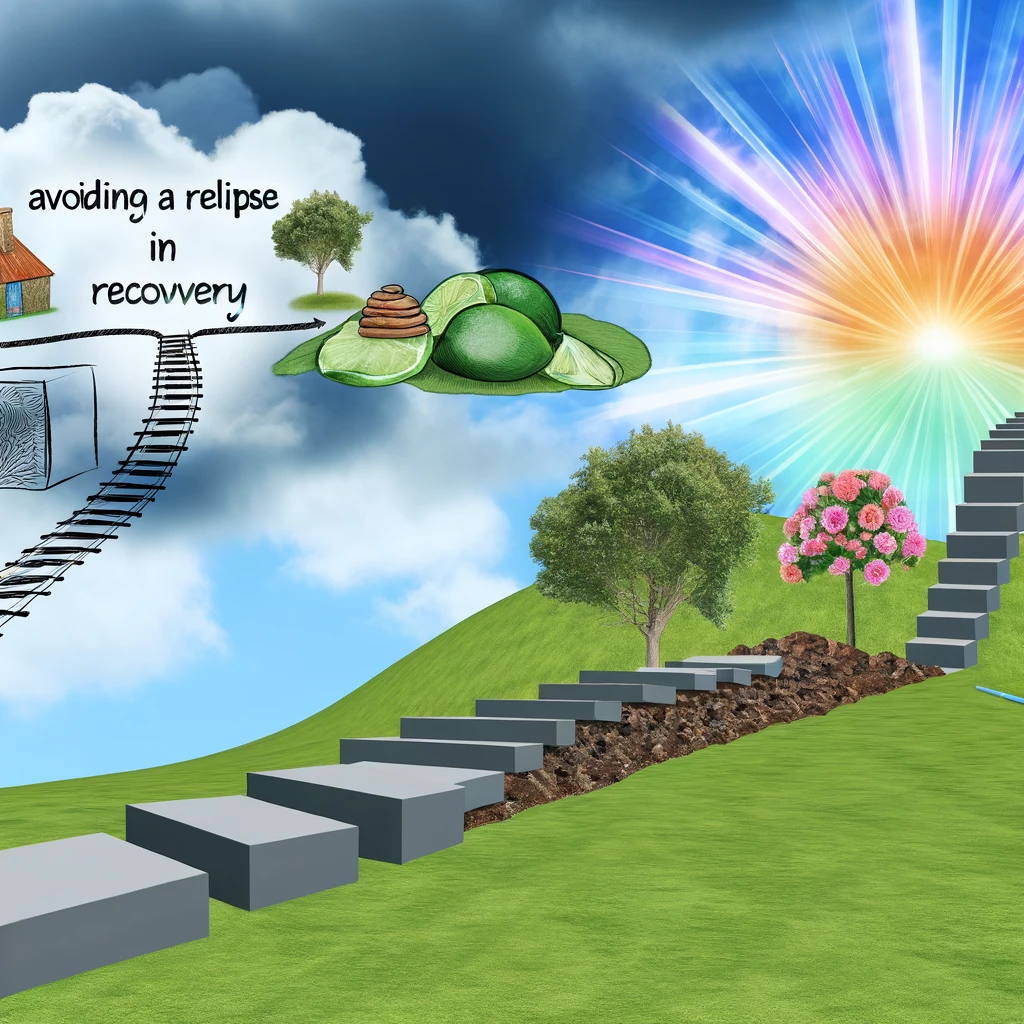
Completely eliminating the risk of a cocaine relapse might not be realistic. Addiction is a complex disease, and relapse is a common part of the recovery journey. However, by understanding the factors that contribute to relapse and implementing preventative strategies, you can significantly increase your chances of staying cocaine-free. This response will explore various approaches to minimize relapse risk, focusing on building a strong foundation for recovery.
Understanding Relapse:
Relapse isn’t a sudden fall back into old habits. It’s a gradual process with identifiable warning signs. Recognizing these signs empowers you to intervene before a full-blown relapse occurs. Here are some common triggers:
- Stress and Cravings: Stress is a major relapse trigger. Cocaine use was likely a coping mechanism, and stressful situations can make you crave the drug again.
- Negative Emotions: Negative emotions like loneliness, depression, and anger can fuel cravings and push you towards relapse.
- Exposure to Cues: Certain places, people, or even objects associated with past cocaine use can trigger cravings.
- High-Risk Situations: Situations where cocaine is readily available or where drug use is prevalent significantly increase relapse risk.

Building a Strong Recovery Foundation:
1. Commitment and Support:
- Self-Motivation: A strong desire to stay sober is crucial. Reflect on the positive changes you’ve achieved in recovery and the potential consequences of relapse.
- Support System: Surround yourself with supportive people who encourage your recovery. This could include family, friends, therapists, and support groups like Narcotics Anonymous (NA).
2. Therapy and Counseling:
- Cognitive Behavioral Therapy (CBT): CBT helps identify and change negative thought patterns that contribute to drug use. You’ll learn healthy coping mechanisms to manage stress and cravings.
- Individual and Group Therapy: Individual therapy provides a safe space to explore underlying issues that fueled your addiction. Group therapy allows you to connect with others on a similar journey and gain strength from shared experiences.
3. Relapse Prevention Planning:
- Identify Triggers: Work with your therapist to identify your personal relapse triggers. Develop strategies to avoid or cope with these situations effectively.
- High-Risk Situations: Plan how to manage situations where you might encounter cocaine. This may involve practicing refusal skills or having an exit plan ready.
- Coping Mechanisms: Develop healthy coping skills to manage stress, cravings, and negative emotions. This could include exercise, relaxation techniques like meditation or deep breathing, spending time with loved ones, or engaging in hobbies you enjoy.

4. Maintaining a Healthy Lifestyle:
- Regular Exercise: Physical activity is a powerful tool for stress reduction, mood improvement, and overall well-being.
- Healthy Diet: Eating a balanced diet provides your body with the nutrients it needs to function optimally and can help resist cravings.
- Adequate Sleep: Adequate sleep is essential for physical and mental health. When well-rested, you’re better equipped to manage cravings and stress.
5. Mindfulness and Self-Care:
- Mindfulness Practices: Practices like meditation or mindfulness exercises can help you become more aware of your thoughts and emotions, allowing you to respond to cravings in a healthy way.
- Self-Care: Prioritize activities that nourish your mind, body, and spirit. This could include spending time in nature, practicing gratitude, or engaging in activities you find relaxing and enjoyable.
Additional Tips:
- Be Honest About Struggles: Don’t feel ashamed to reach out for help if you’re struggling with cravings or thoughts of relapse. Talk to your therapist, sponsor, or a trusted friend.
- Celebrate Milestones: Acknowledge and celebrate your progress in recovery, big or small. This helps maintain motivation and reinforces positive behaviors.
- Avoid Alcohol and Other Drugs: Using any mood-altering substances can increase your risk of relapsing on cocaine.
Remember:
- Relapse Doesn’t Define You: If you do relapse, it’s not a sign of failure. View it as a learning experience and an opportunity to strengthen your recovery plan.
- Seek Help Immediately: If you relapse, reach out for help immediately. Contact your therapist or support group. The sooner you get back on track, the easier it will be.



